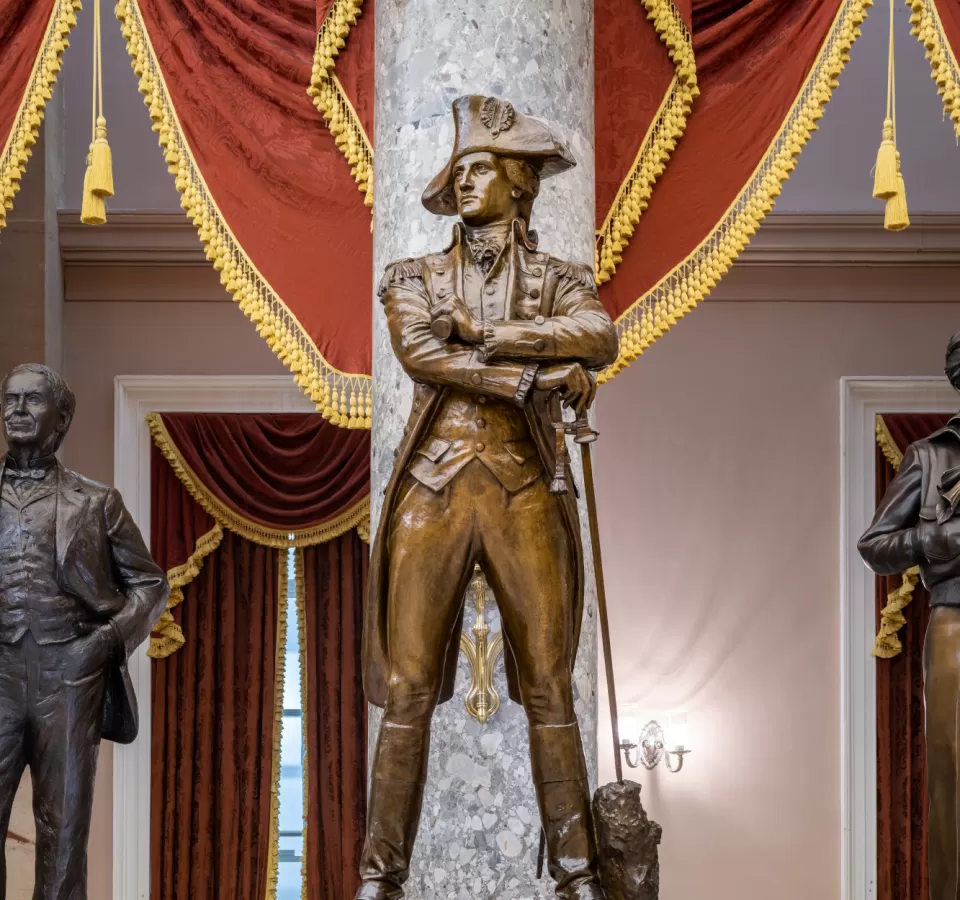Highlights
This statue of John Sevier was given to the National Statuary Hall Collection by Tennessee in 1931.
John Sevier was born in Rockingham County, Virginia, on September 23, 1745. Searching for available land he could afford, he moved west in 1772 and served as a militia captain under George Washington in Lord Dunmore's War. A lieutenant colonel in the trans-Allegheny forces during the Revolution, he was commended for his services at Kings Mountain in 1780. Consequently, in March 1785 he was elected governor of the independent State of Franklin, a portion of North Carolina where settlers desired statehood. North Carolina declared the State of Franklin in revolt, subdued it with force, and ceded it to Congress. Subsequently, Sevier was elected to the North Carolina Senate in 1789, received a full pardon, and was restored to his status of brigadier general.
He retired to his plantation and was appointed trustee of Washington College and Blount College (now the University of Tennessee). Because of his military renown, he was elected the first governor of Tennessee (1796–1801 and 1803–1809), state senator (1809–1811), and a member of the U.S. House of Representatives in 1811. He died on September 24, 1815, while serving as commissioner to survey the boundary between Georgia and the land of the Creek Indians in Alabama. His remains were later reinterred in Knoxville, Tennessee.

